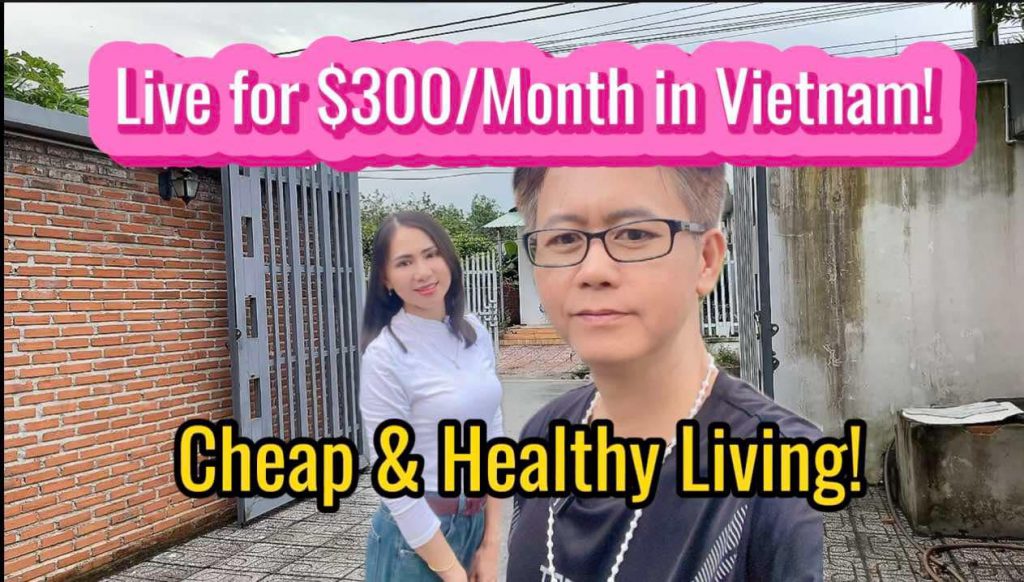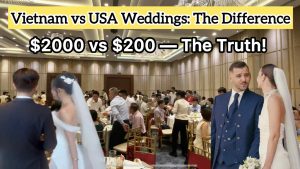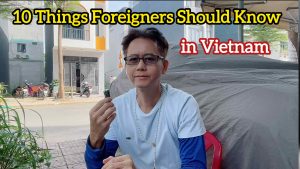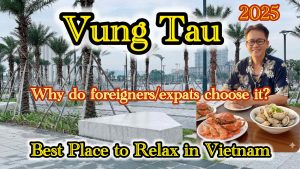Living on $300/Month with Organic Food: Vietnamese Woman Shares Cost of Living in Binh Duong with a Vietnamese-American

Living on $300/Month with Organic Food: Vietnamese Woman Shares Cost of Living in Binh Duong with a Vietnamese-American
When Tony, a Vietnamese-American who had lived in the U.S. for over three decades, returned to Vietnam to explore his roots, he was surprised to discover a simple yet fulfilling lifestyle in Binh Duong. Meeting Xuyen, a warm and energetic woman from the countryside, opened his eyes to a way of living that cost less than what he spent on a week of groceries back in America.
Xuyen greeted Tony with a smile as she welcomed him to her home village on the outskirts of Dau Tieng District. The first thing Tony noticed was the lush green gardens surrounding every house, filled with rows of vegetables—morning glory, bitter melon, loofah, and gourds—growing abundantly.
Xuyen explained:
“In the countryside here, almost every family has a piece of land to plant vegetables. We don’t just grow for sale but mainly for ourselves. That’s why our monthly expenses are so low.”
She led Tony around her small farm, pointing to the vegetable patches and chicken coop in the backyard. As they walked, Tony was shocked to hear the estimated cost of living.
“Two people can live here comfortably on about 5 to 7 million dong per month,” Xuyen said. “That’s only $200–300 dollars, including electricity, water, and daily food. Most of the food comes straight from our garden or the river.”
Tony paused. In California, $300 barely covered a week’s groceries, yet here it covered a month’s worth of fresh, organic meals.
Xuyen continued,
“We plant morning glory, loofah, pumpkins, and bitter melon for vegetables. As for protein, many families raise chickens and ducks, or catch fish from the local rivers and ponds.”
As they passed the river behind her house, Xuyen showed Tony a small net used to catch fish. She explained how older villagers or kids would throw the nets in the river every few days, bringing home fresh fish for their meals.
“This is how people in the countryside live. We almost never buy meat or fish from the market,” she said. “We only go to the market for necessities like salt, oil, or rice.”
Tony was curious how they got by with such low expenses. He asked about things like health care, entertainment, and other costs.
“Older people here rarely spend on entertainment,” Xuyen smiled. “Their entertainment is gardening, chatting with neighbors, and visiting relatives. If they want to go out, a coffee costs only 15,000–20,000 dong (about $0.60–$0.80).”
Electricity and water bills were also minimal, usually around 300,000–500,000 dong per month for two people—about $12–$20.
One of the highlights of Tony’s visit was seeing the water well many homes used instead of expensive piped water. The well water was cool and fresh, filtered by the layers of sand and stone underground. For extra safety, Xuyen’s family installed a simple filtration system costing less than $100, which lasted for years.
Xuyen invited Tony to join her for a meal. They prepared stir-fried loofah, fresh river fish cooked in a clay pot, and a small plate of home-grown herbs. Everything tasted more vibrant than any restaurant meal Tony had in America. The flavors were pure, with no additives or artificial flavors.
She explained that many older Vietnamese-Americans who came back to retire in places like Dau Tieng chose this lifestyle precisely because of the low costs and the high quality of food. Here, they could spend their golden years stress-free, in a familiar culture, surrounded by people who spoke the same language.
Xuyen said,
“Some Vi?t Ki?u go to Thailand or the Philippines for cheaper living, but nothing compares to your own country. Here, you know the people, the streets, the food, and the traditions. You can enjoy your life without feeling like a stranger.”
She added that many returnees found comfort in the warmth of community. In the mornings, neighbors would exchange vegetables or fruit. In the evenings, they gathered for small talks or invited each other for dinner. It’s a lifestyle that can’t be bought with money.
When Tony asked about safety, Xuyen reassured him:
“People here know each other. If a stranger comes around, everyone knows right away. We look out for each other.”
The low cost of living, organic food, sense of community, and slower pace of life were the main reasons why many overseas Vietnamese returned to places like Binh Duong to retire.
Tony concluded his visit inspired and hopeful. He realized that life didn’t need to be complicated or expensive to be rich in meaning. The trip to Binh Duong helped him see that happiness could be found in a simple meal, a familiar street, and warm conversations with old friends.
Before leaving, Tony thanked Xuyen, who waved him off with a bright smile, promising to show him more hidden corners of Binh Duong next time.
VietnamLife #CostOfLivingVietnam #OrganicFood #VietnameseCulture #RetireInVietnam #BinhDuong #VietnameseWomen #VietKieu




